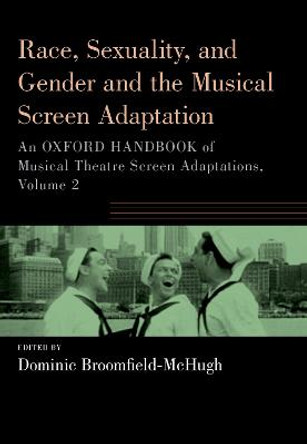Hollywood's conversion to sound in the 1920s created an early peak in the film musical following the immense success of The Jazz Singer. The opportunity to synchronize moving pictures with a soundtrack suited the musical in particular, since the heightened experience of song and dance drew attention to the novelty of the technological development. Until the near-collapse of the genre in the 1960s, the film musical enjoyed around thirty years of development, as landmarks such as The Wizard of Oz, Meet Me in St. Louis, Singin' in the Rain, and Gigi showed the exciting possibilities of putting musicals on the silver screen. The first of three volumes, The Politics of the Musical Theatre Screen Adaptation: An Oxford Handbook traces how the genre of the stage-to-screen musical has evolved, starting with early screen adaptations such as the Fred Astaire-Ginger Rogers movie Roberta and working through to Into the Woods (2014). Many chapters examine specific screen adaptations in depth, while others deal with broad issues such as realism or the politics of the adaptation in works such as Li'l Abner and Finian's Rainbow. Together, the chapters incite lively debates about the process of adapting Broadway for the big screen and provide models for future studies. Volume I: The Politics of the Musical Theatre Screen Adaptation Volume II: Race, Sexuality, and Gender and the Musical Screen Adaptation Volume III: Stars, Studios, and the Musical Theatre Screen Adaptation
About the AuthorDominic Broomfield-McHugh is Professor of Musicology at the University of Sheffield. He has published widely on the Broadway and Hollywood musicals, including seven books, and has collaborated with many of the world's leading arts organisations, ranging from the Sydney Opera House to the Library of Congress.
Book InformationISBN 9780197649398
Author Dominic Broomfield-McHughFormat Paperback
Page Count 440
Imprint Oxford University Press IncPublisher Oxford University Press Inc
Weight(grams) 517g
Dimensions(mm) 141mm * 211mm * 26mm




